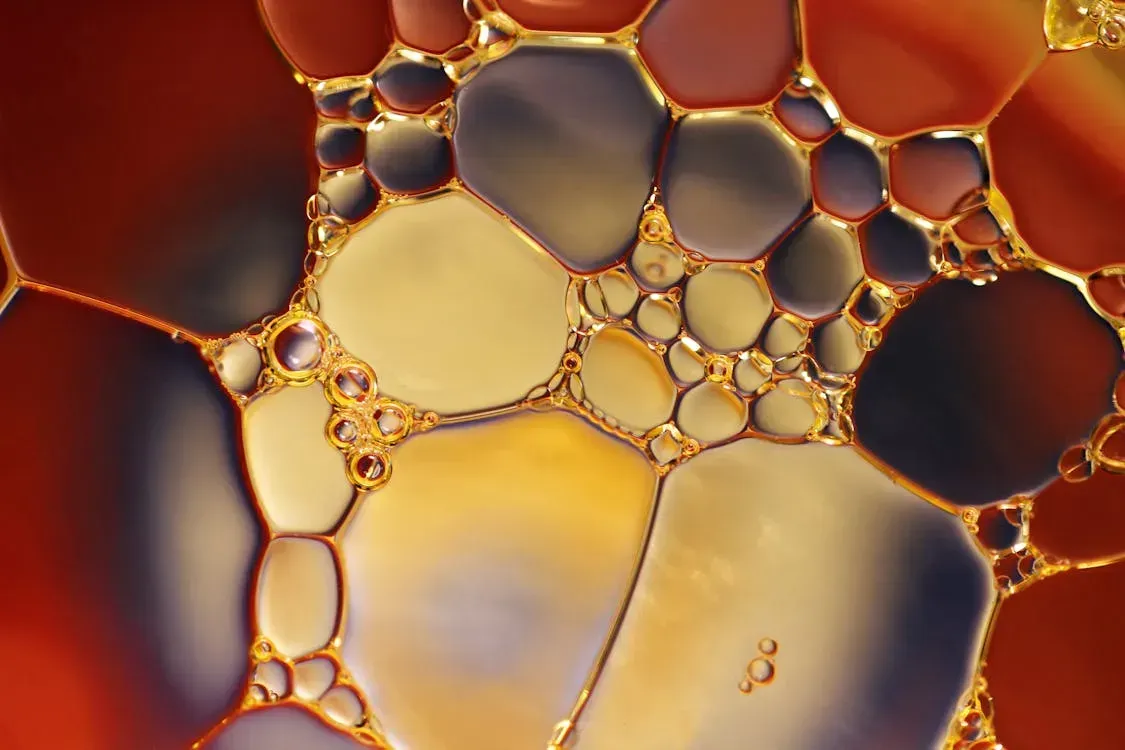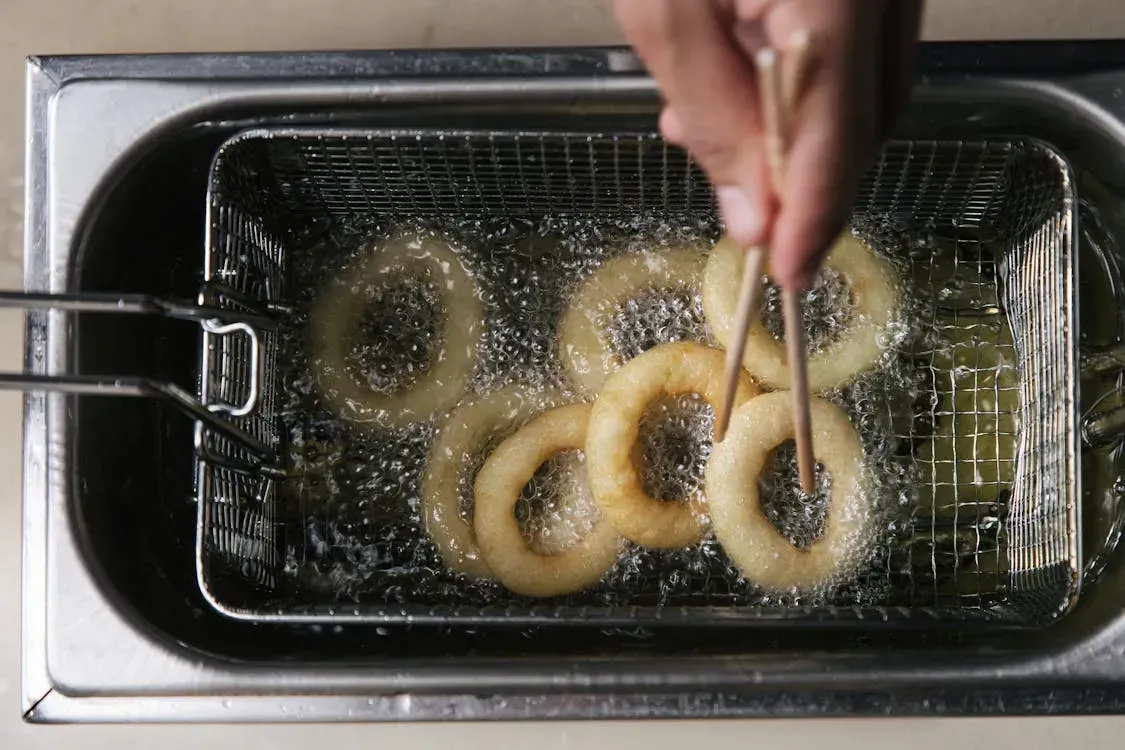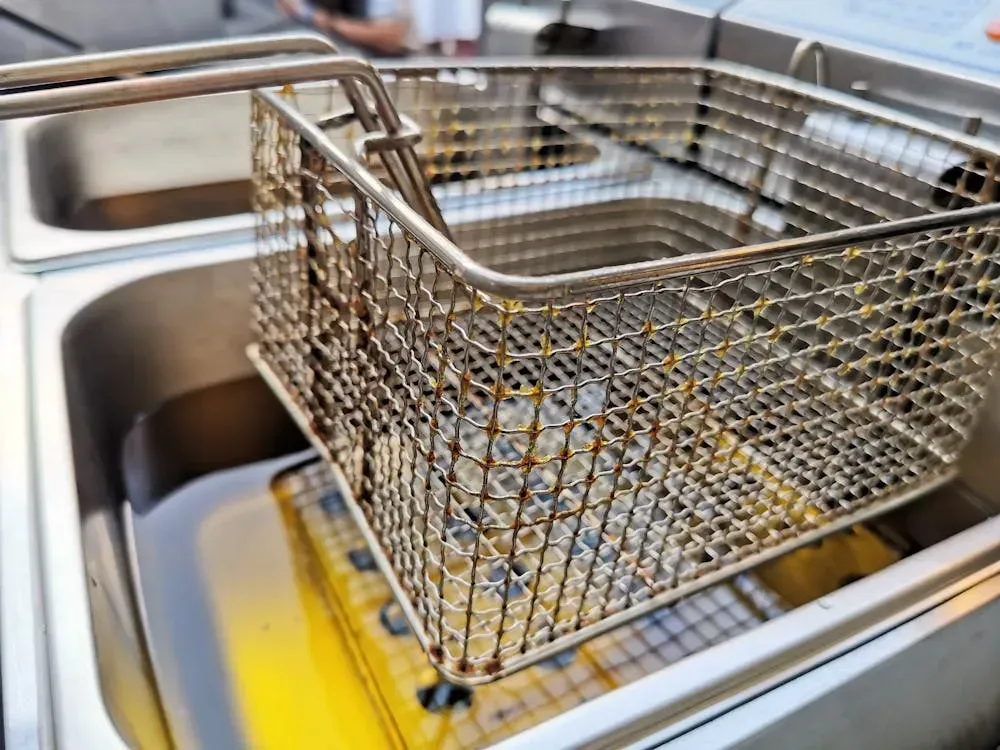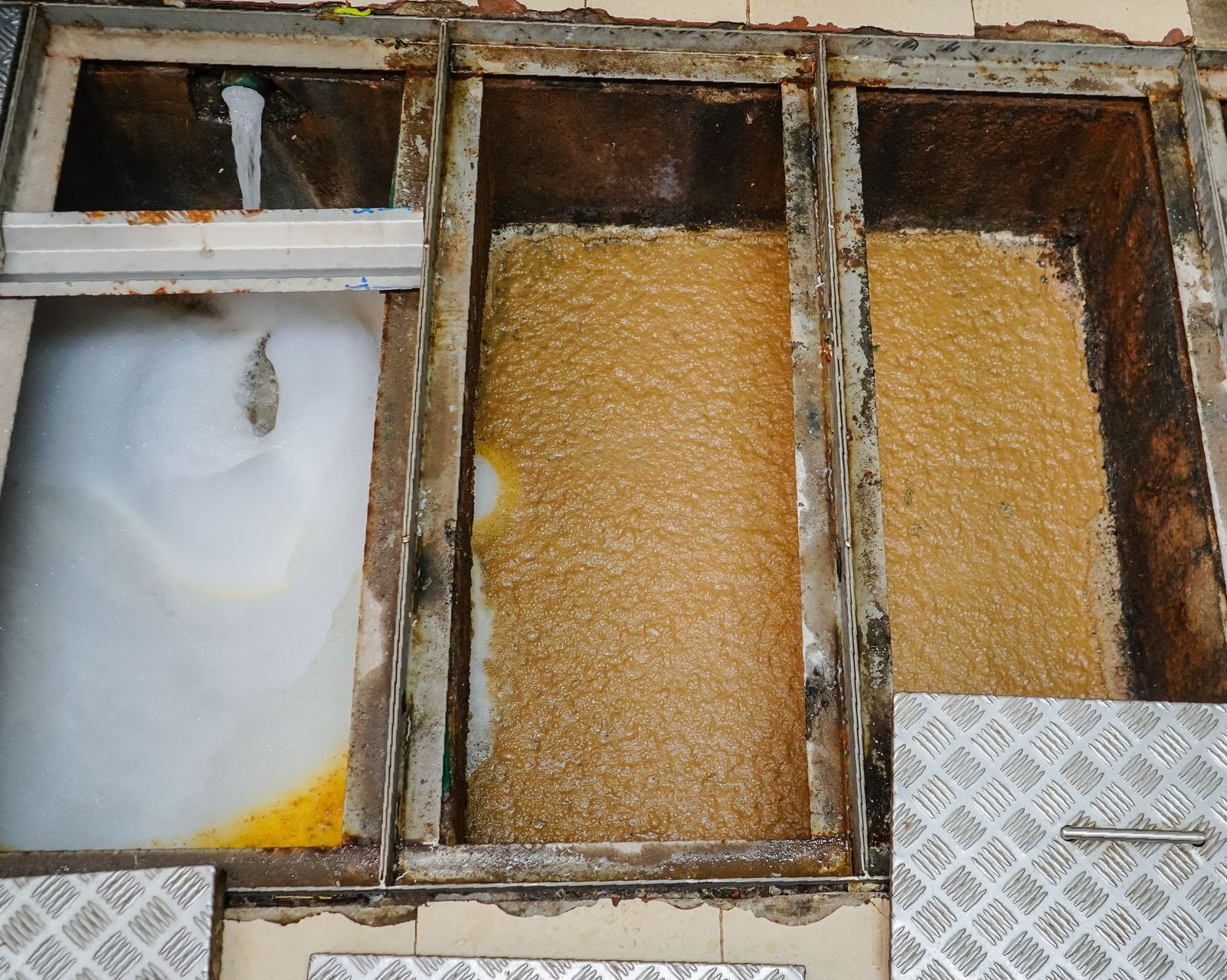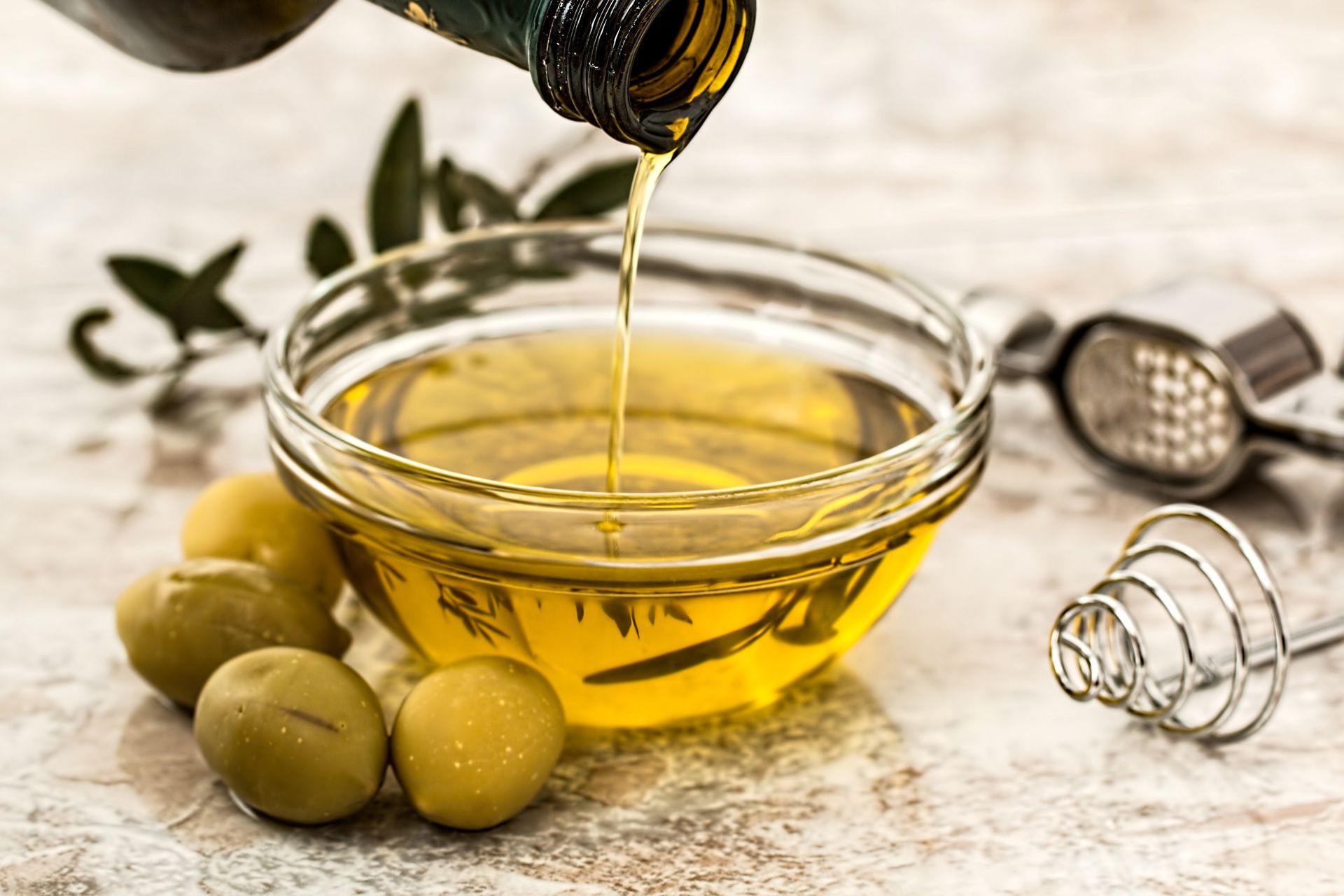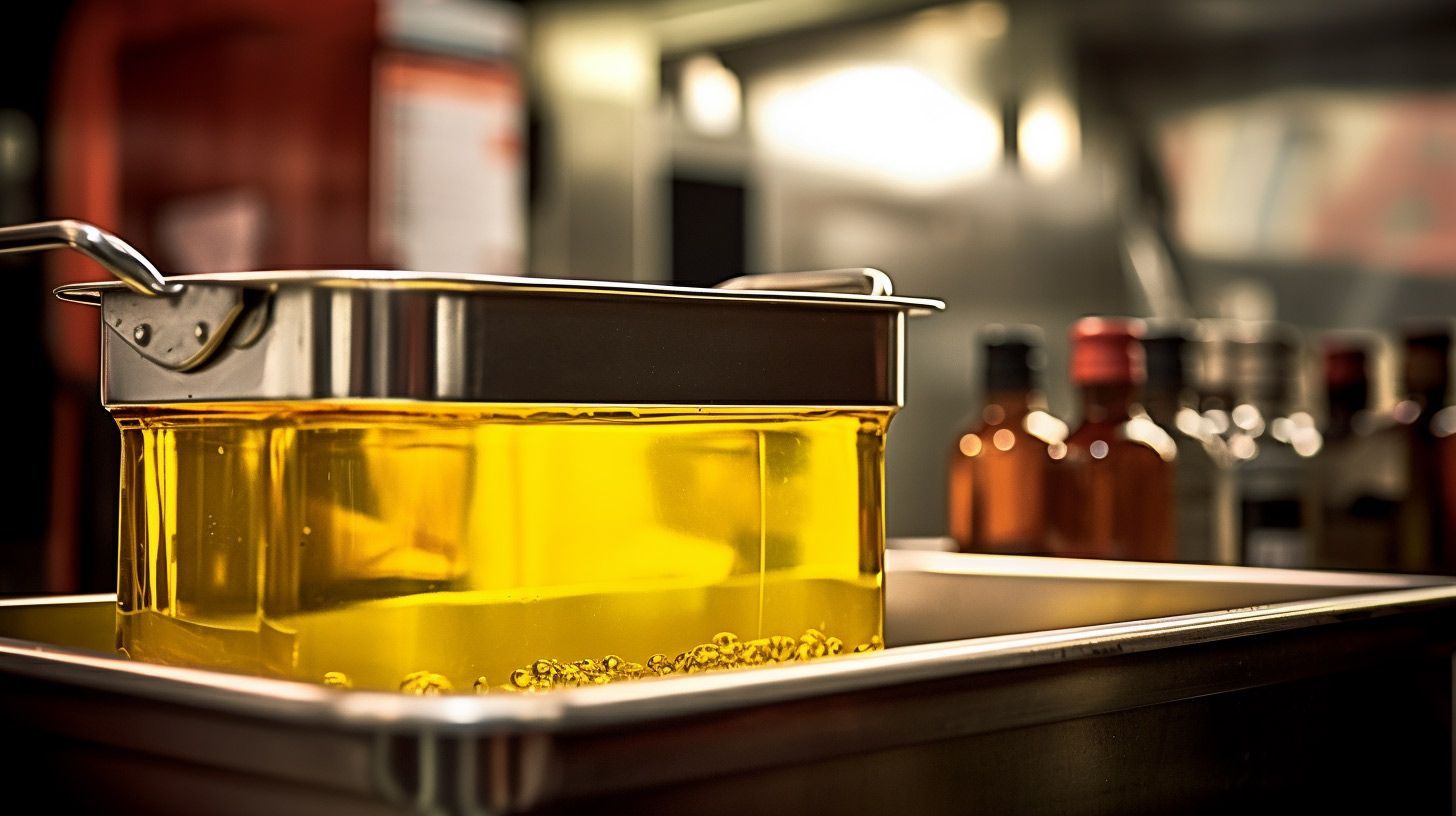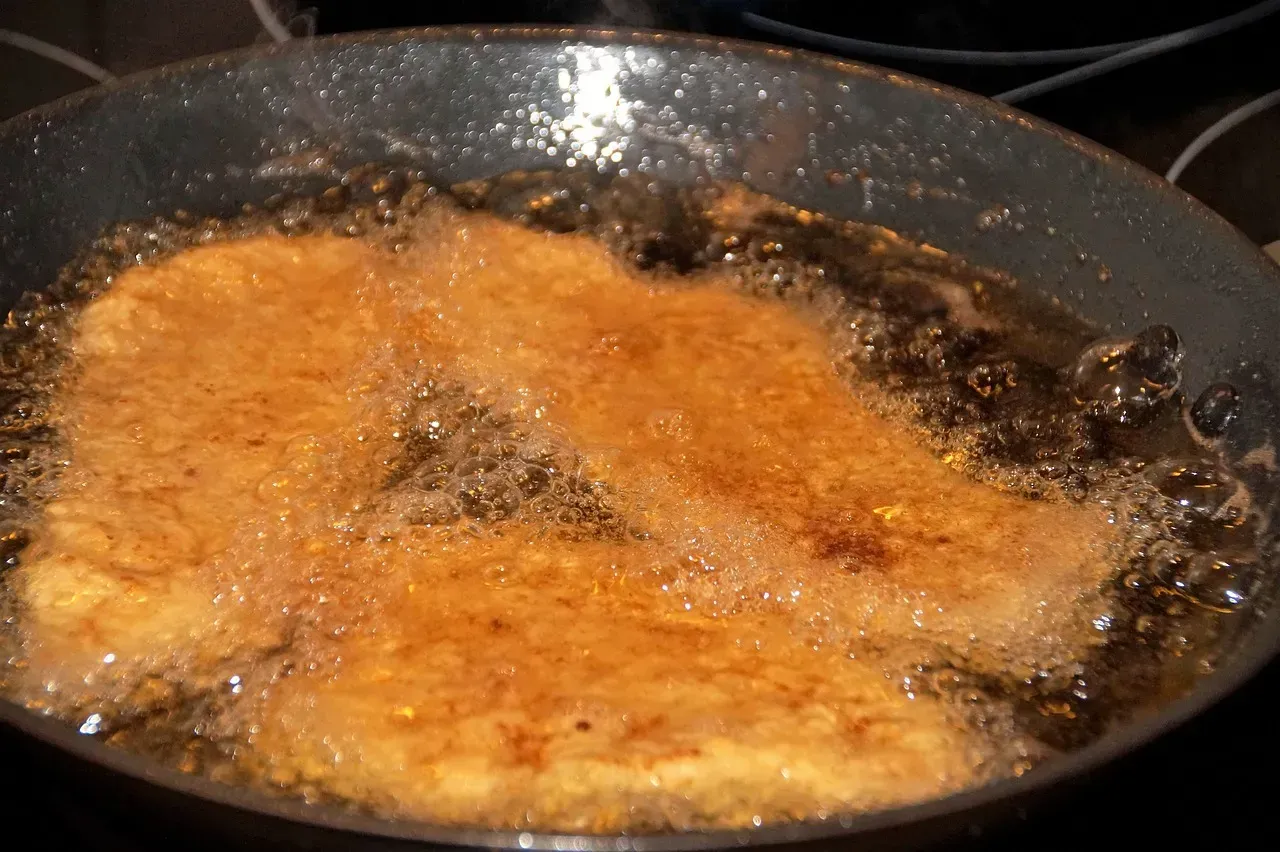
Why is Used Cooking Oil Valuable?
Used cooking oil (UCO) is valuable for both businesses and the environment. Instead of being thrown away, it can be repurposed for multiple uses. From making biodiesel to creating products like soap, UCO helps reduce waste and supports sustainable practices. Whether you’re running a business or just looking to recycle, understanding its value can lead to smarter decisions.
Now, let’s explore the reasons why used cooking oil is so important.
Environmental Benefits of Used Cooking Oil
Recycling used cooking oil has several key environmental benefits. When improperly disposed of, UCO can clog drains and contaminate local water systems, causing severe damage to aquatic life. Even small amounts of oil can harm ecosystems, making proper disposal crucial. By recycling, you help prevent pollution and protect the environment from these harmful effects.
Another major benefit of recycling UCO is its role in producing biodiesel, an eco-friendly alternative to petroleum-based fuels. Biodiesel made from UCO is renewable, biodegradable, and produces far fewer emissions compared to fossil fuels. This shift helps lower greenhouse gas emissions, which is critical in the fight against climate change.
Moreover, when UCO is recycled for energy production, it reduces the need for virgin oil sources, lowering the demand for new resources. This cuts down the environmental impact of extracting and processing new oils.
Lastly, some industries use UCO as an ingredient in products like animal feed, industrial lubricants, and even cosmetics. These alternative uses help promote a circular economy, where waste is minimized, and resources are reused in various ways. This reduces the environmental strain of manufacturing entirely new products.
In short, recycling used cooking oil is a simple yet effective way to reduce pollution, conserve resources, and contribute to a sustainable future.
Economic Value of Used Cooking Oil
Used cooking oil isn't just an environmental asset—it’s also a valuable resource for businesses. Restaurants, food manufacturers, and even households can benefit financially by selling their used cooking oil to recycling companies. This practice helps turn what would be waste into a new source of income.
Many companies collect UCO and process it into biodiesel or other industrial products. As demand for sustainable fuels grows, the market for used cooking oil continues to expand. Businesses that regularly produce large quantities of UCO can enter contracts with recycling companies to ensure consistent income from something they used to throw away.
On top of that, using UCO for biodiesel can lead to cost savings in industries reliant on fuel. Instead of paying for expensive fossil fuels, they can use cheaper, sustainable alternatives made from recycled oil. This can lower operational costs, particularly for transportation and energy-heavy industries.
Additionally, governments in many areas offer incentives for businesses that recycle UCO. These incentives could include tax credits, grants, or rebates, making recycling not only an eco-friendly choice but a smart financial move as well.
In short, recycling UCO not only helps the planet but can boost a company’s bottom line, offering a win-win situation.
Industrial Uses for Used Cooking Oil
Used cooking oil has found its way into several industries beyond just biodiesel production. Its versatility makes it a valuable raw material in the production of various products.
- Cosmetics and Soaps: UCO is a key ingredient in many soaps and beauty products. The oil is treated and purified, then used to create sustainable skincare products. These products often have a lower environmental impact compared to those made with virgin oils.
- Animal Feed: UCO is also repurposed into animal feed after proper treatment. It provides a rich energy source for livestock, reducing the need for other fats and oils in animal diets. This process helps reduce waste while supporting the agricultural industry.
- Industrial Lubricants: Some industries use UCO to create eco-friendly industrial lubricants. These lubricants are often biodegradable and reduce dependence on petroleum-based products. They’re used in machinery and various equipment, especially in industries looking to reduce their environmental footprint.
- Cleaning Agents: Used cooking oil is a base for creating certain cleaning products, including degreasers and other industrial cleaners. These products are not only effective but also help lower waste by reusing materials that would otherwise be discarded.
By diversifying the uses of UCO, industries are able to cut down on raw material costs and contribute to a more sustainable production cycle. This wide range of applications highlights why UCO is such a valuable resource across different sectors.
Environmental Regulations and Incentives
Governments around the world are increasingly recognizing the environmental value of used cooking oil and have put regulations in place to encourage its recycling. These regulations aim to reduce improper disposal, which can lead to environmental damage, while also promoting the production of renewable fuels like biodiesel.
In many regions, businesses are required by law to properly dispose of their used cooking oil, and failing to do so can result in fines or penalties. These regulations are designed to prevent oil from clogging sewage systems or polluting water sources. By following proper recycling practices, businesses can avoid these legal issues and contribute to environmental protection.
On the incentive side, governments offer tax breaks, grants, and rebates to companies that actively recycle their UCO. For example, businesses involved in biodiesel production from UCO may qualify for renewable energy credits. These credits can reduce the cost of operations, providing a financial boost to companies that are making environmentally conscious choices.
In some countries, there are even government-backed programs that help businesses partner with UCO collection services, simplifying the recycling process. These initiatives further underline the importance of UCO as a resource, making it easier and more rewarding for companies to engage in sustainable practices.
Overall, by following regulations and taking advantage of incentives, businesses can save money, stay compliant with laws, and support broader environmental goals.
How to Properly Store and Recycle Used Cooking Oil
Properly storing and recycling used cooking oil is essential to ensure it can be effectively reused. If not stored correctly, UCO can spoil, making it unsuitable for recycling or biodiesel production. Here’s how to manage it safely:
- Let it Cool: Before handling used cooking oil, always let it cool down. Hot oil can be dangerous to handle and can damage storage containers.
- Use Airtight Containers: Store the cooled oil in a clean, airtight container. This prevents contamination and keeps the oil from becoming rancid. Plastic jugs or metal containers are often recommended for this purpose.
- Avoid Mixing with Other Substances: Ensure that no food particles, water, or other liquids mix with the oil. Contaminated oil is harder to recycle and may be rejected by recycling companies.
- Label the Containers: If you're storing large quantities of UCO, label the containers with the date and type of oil. This helps recycling centers know how to process the oil and ensures the quality is maintained.
- Find a Recycling Service: Many local recycling centers and companies offer cooking oil collection services. Research UCO collectors in your area, or check with local waste disposal services to see if they offer pickup or drop-off points for used cooking oil.
Safe storage also minimizes the risk of spills and contamination, keeping your environment clean and reducing waste.
Conclusion
Used cooking oil is far more valuable than many realize. By recycling UCO, you contribute to a cleaner environment, reduce waste, and even create new opportunities for financial gain. Whether it’s through biodiesel production, industrial uses, or helping businesses save on energy costs, the benefits are clear. Proper storage and recycling practices ensure that this valuable resource is used to its fullest potential.
If you're in need of a reliable service to handle your used cooking oil, look no further than Eco of Idaho. They provide top-notch services in Boise, ID, Idaho Falls, ID, and Le Grande, OR. Eco of Idaho specializes in:
- Grease Trap Cleaning and Oil Collection
- Cooking Oil Collection
- Grease Trap Pumping
- Bulk Waste Water Transport
With their expertise, you can ensure your cooking oil is recycled responsibly and efficiently. Contact Eco of Idaho today to learn how they can help you turn your used cooking oil into a valuable resource.

